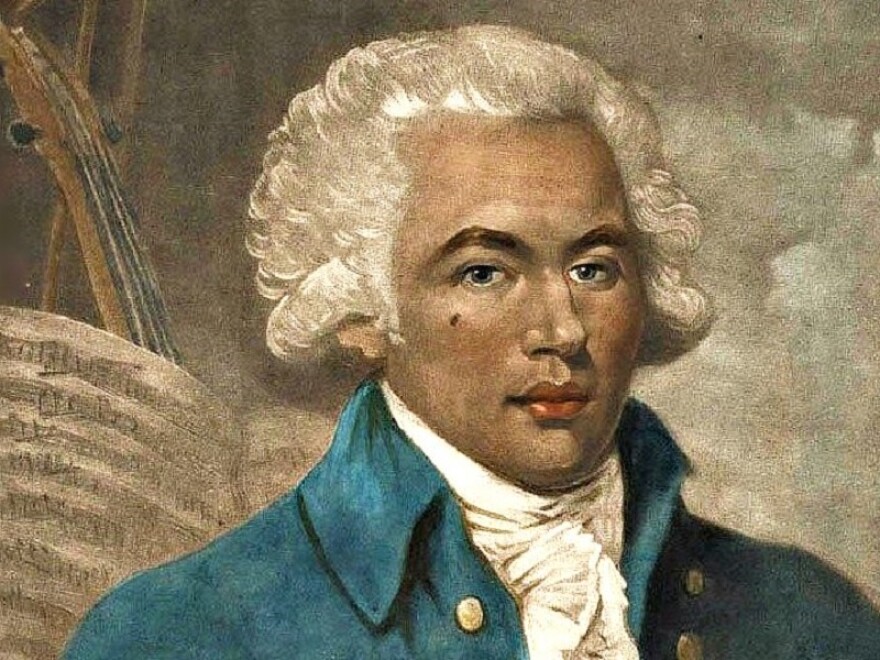You might be familiar with another podcast from Vermont Public, Brave Little State. It’s our people-powered journalism project where listeners submit questions and the team then explores and reports whatever answers they could find. It’s always insightful and interesting. You should check it out if you get a chance. For our next series of Timeline episodes, we’re going to follow that example. I recently got an email from a listener who had a question that they would like us to explore.
Janet Watton: My name is Janet Watton and I live in Randolph Center.
James Stewart: Janet was president of the board of the Chandler Center for the Arts for many years.
Janet Watton: And I was the one that mostly suggested whom we booked for all the classical performances that we have at Chandler.
James Stewart: Janet has a question about a French composer of the late 18th century named Joseph Bologne Chevalier de Saint-Georges.
Janet Watton: Well, like, probably everybody else, I never heard of this man. And my daughter and I went to Caramoor last July. We had no idea what it was going to be, but it was a kind of a singspiel about this person named Chevalier de Saint-Georges. And it just blew my mind that here’s this incredible person that today we know very little about.
James Stewart: So, for the next few episodes of Timeline we’re going to try to answer this question that Janet gave us.
Janet Watton: Why was Chevalier de Saint-Georges, who was so prominent during his time, now unknown in our time?
James Stewart: This is a timely question as well. There’s been recent interest in the music of this Classical violinist, conductor and composer. Ensembles have been performing and recording his music for the past couple of decades and just last year there was a biopic called Chevalier! written by Stefani Robinson and directed by Stephen Williams. So, Chevalier’s name is just starting to be recognized today, but it’s fair to ask why has it taken over two centuries for us to notice and acknowledge this amazingly talented musician?
The answer to that question will take us on a journey through the politics of the First French Colonial Empire, the French Revolution and the rise of Napoleon. We’ll talk about fencing, slavery, scorned lovers, racism and even the language we use to define composers like Chevalier. We’ll meet characters like Haydn, Gossec, Mozart and Marie Antoinette. And I won’t be doing this alone. I reached out to my colleague, Myra Flynn, the creator and host of the podcast Homegoings, a righteous space for art and race. Myra is a prolific songwriter and performer with roots in the classical music world.
Myra Flynn: I started classical piano at age four and kind of as soon as I could, as a teenager, left it for songwriting. But, it’s still in me, you know. It never leaves you or your muscle memory.
James Stewart: Myra is a woman of color, biracial like Chevalier. I sat down with her and previewed this entire story. I had asked her not to do any research of her own ahead of time so I could get her reactions in real time. Myra had important insights to share about this story of systematic racism and the erasure of Black composers in classical music.
Myra Flynn: It’s just so tough and it’s so nuanced. However, I do believe that art wraps some of these more difficult subjects up in a gift wrap of sorts, where we can swallow the pill a little more easily. Because art was a way through for pretty much everybody who ever made it. Yeah, that’s a little heady but that’s kind of what I think about what you just told me. It’s like, some old, and also new all over again.
James Stewart: Stay with us as we explore the life of Chevalier de Saint-Georges and do our best to answer the question of why he was forgotten. As always, remember to follow the Timeline.




